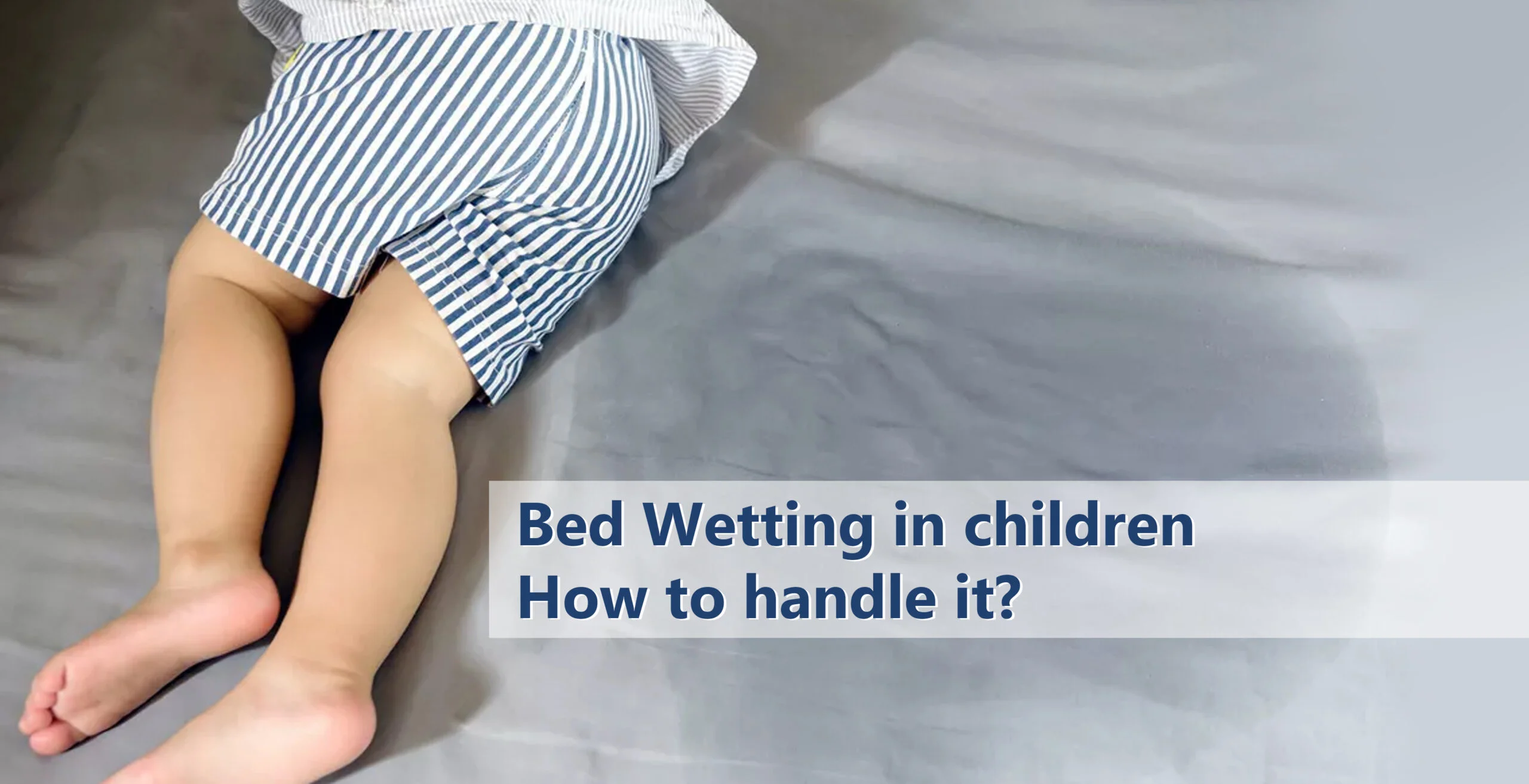Bed Wetting in children - How to handle it?
Bedwetting is common in children and about 40% of them bed wet until they are 4-6 years of age. Also referred to as nocturnal enuresis, this is seen as a common habit of very young children. Typically, children are toilet trained by the time they turn 2 years of age but they cannot keep themselves dry all through the night until they are older. Generally, 85% of children can control their bladder by the time they turn 6 years of age and a very few of them keep wetting their bed at night, until they turn 10 years of age, which is not normal, according to pediatricians.
It is appropriate to consult a pediatrician if the child wets the bed even after crossing 7 years of age, or if the child who has remained dry has started to wet the bed at night. If the bedwetting is accompanied by painful urination, unusual thirst, hard stools, snoring, etc., then it has to be brought to the attention of the pediatrician immediately.
Common reasons for bedwetting by children:
Many things can lead to bedwetting in children. Some children could have slower development of the bladder and will not be able to control their bladder all through the night. Stress, threats, and anxiety can also result in bedwetting, in children who have attained bladder control. Infections of urinary bladder can trigger bedwetting in children, who have been trained to stay dry. In such instances, pediatrician might order a urine test to identify and treat the underlying condition. Other common reasons for bedwetting in children are taking ample fluids close to bedtime. Rarely, there are chances for this habit to run in the family as well.
Handling this habit of bedwetting in Children:
The best way to limit this habit of bedwetting in children is to limit fluids before bedtime. Kids should be discouraged from drinking caffeinated drinks and parents should train the child with pants instead of diapers at night.
Kids should be encouraged to use the toilet before bedtime. Parents have to make sure that the child can reach the bathroom easily at night. There is no point in waking the child up to pee in the middle of the night, as it will not help him to avoid bedwetting and will only disturb the sleep of the child.
Stress and anxiety can be important triggering factors for children to start bedwetting. Children with attention deficit hyperactive disorder can also develop bedwetting and it is important to get this condition treated at the earliest.
When should you talk to the pediatrician about bed wetting?
Inform your pediatrician immediately if your child,
- Bed wets after crossing 7 years of age
- The child who has stayed dry starts to bed wet
- The child has pain while passing urine
- The urine has blood traces.
Bottom Line:
Generally, 1% of all the bedwetting instances are related to urinary tract infections and incompetent bladder development. With appropriate care, support and treatment, children can easily outgrow this habit of bedwetting, before they turn 10 years of age.

 Appointments
Appointments




.webp)
_Symptoms,_Causes,_Diagnosis,_Prevention_and_Treatmen.webp)